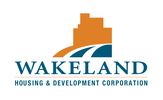Redevelopment takes green approach with interim program
San Diego Union Tribune
January 4, 2011
The San Diego Redevelopment Agency is pursing a pilot program for commercial development that would require some projects to incorporate additional environmentally-sensitive standards and practices.
Developers applying for at least $100,000 in assistance must exceed provisions of a statewide green-building code that took effect Jan. 1. The program, which requires projects to obtain Leadership in Energy and Environmental Design “silver” certification, was approved by the North Park Redevelopment Project Area Committee and is limited to North Park. The City Council, acting as the Redeployment Agency board, is expected to approve funding for two projects in March.
“In general, since we’ve had these project areas, we’ve been doing sustainable development. We just haven’t been calling it that,” said Michael Lengyel, a project manager with the agency. “What the community is now saying is, ‘If we are going to provide that much assistance, you have to do a green project beyond what the city code requires.’”
For projects requesting less than $100,000, more stringent certification would not be necessary. Still, developers who best promote healthy communities, reduce emissions, conserve water and encourage job training and growth would be given preference over their competitors, Lengyel said.
The new statewide code mandates eco-friendly practices that previously were voluntary. Among the 52 measures that will become part of the city’s verification and inspection process are: parking for clean-air vehicles, reducing potable water use by 20 percent; diverting construction waste from landfills by 50 percent; and using building materials that emit low levels of volatile organic compounds.
Eliana Barreiros, a project manager with the agency, stressed that several recently completed and upcoming developments were planned with many of the new guidelines in mind.
In 2010, that included transforming a seedy hotel into a future haven for recovering addicts in North Park, opening Urban Corps’ green campus with a recycling education and community center in Midway, and transforming an apartment complex containing 92 additional affordable housing units in Rolando.
The rehabilitation effort in Rolando by the Redevelopment Agency and Wakeland Housing and Development Corp. incorporated recycled material into exterior furniture, drywall, sidewalks, ceramic tile and carpets and carpet pads, Project Manager Tracy Reed said.
“At one point it was a little more expensive, but (the developer) is actually seeing a return on lower maintenance costs,” Reed said. “More and more the data are showing that although it requires a higher capital investment you actually get more return on operating costs.”
In North Park, the green-building program is expected to encompass projects by Caffe Calabria in the 3900 block of 30th Street and the Media Arts Center San Diego in the 2900 block of El Cajon Boulevard, Lengyel said. “We’re making it very clear that you really need to be implementing sustainable practices,” he said.
January 4, 2011
The San Diego Redevelopment Agency is pursing a pilot program for commercial development that would require some projects to incorporate additional environmentally-sensitive standards and practices.
Developers applying for at least $100,000 in assistance must exceed provisions of a statewide green-building code that took effect Jan. 1. The program, which requires projects to obtain Leadership in Energy and Environmental Design “silver” certification, was approved by the North Park Redevelopment Project Area Committee and is limited to North Park. The City Council, acting as the Redeployment Agency board, is expected to approve funding for two projects in March.
“In general, since we’ve had these project areas, we’ve been doing sustainable development. We just haven’t been calling it that,” said Michael Lengyel, a project manager with the agency. “What the community is now saying is, ‘If we are going to provide that much assistance, you have to do a green project beyond what the city code requires.’”
For projects requesting less than $100,000, more stringent certification would not be necessary. Still, developers who best promote healthy communities, reduce emissions, conserve water and encourage job training and growth would be given preference over their competitors, Lengyel said.
The new statewide code mandates eco-friendly practices that previously were voluntary. Among the 52 measures that will become part of the city’s verification and inspection process are: parking for clean-air vehicles, reducing potable water use by 20 percent; diverting construction waste from landfills by 50 percent; and using building materials that emit low levels of volatile organic compounds.
Eliana Barreiros, a project manager with the agency, stressed that several recently completed and upcoming developments were planned with many of the new guidelines in mind.
In 2010, that included transforming a seedy hotel into a future haven for recovering addicts in North Park, opening Urban Corps’ green campus with a recycling education and community center in Midway, and transforming an apartment complex containing 92 additional affordable housing units in Rolando.
The rehabilitation effort in Rolando by the Redevelopment Agency and Wakeland Housing and Development Corp. incorporated recycled material into exterior furniture, drywall, sidewalks, ceramic tile and carpets and carpet pads, Project Manager Tracy Reed said.
“At one point it was a little more expensive, but (the developer) is actually seeing a return on lower maintenance costs,” Reed said. “More and more the data are showing that although it requires a higher capital investment you actually get more return on operating costs.”
In North Park, the green-building program is expected to encompass projects by Caffe Calabria in the 3900 block of 30th Street and the Media Arts Center San Diego in the 2900 block of El Cajon Boulevard, Lengyel said. “We’re making it very clear that you really need to be implementing sustainable practices,” he said.
